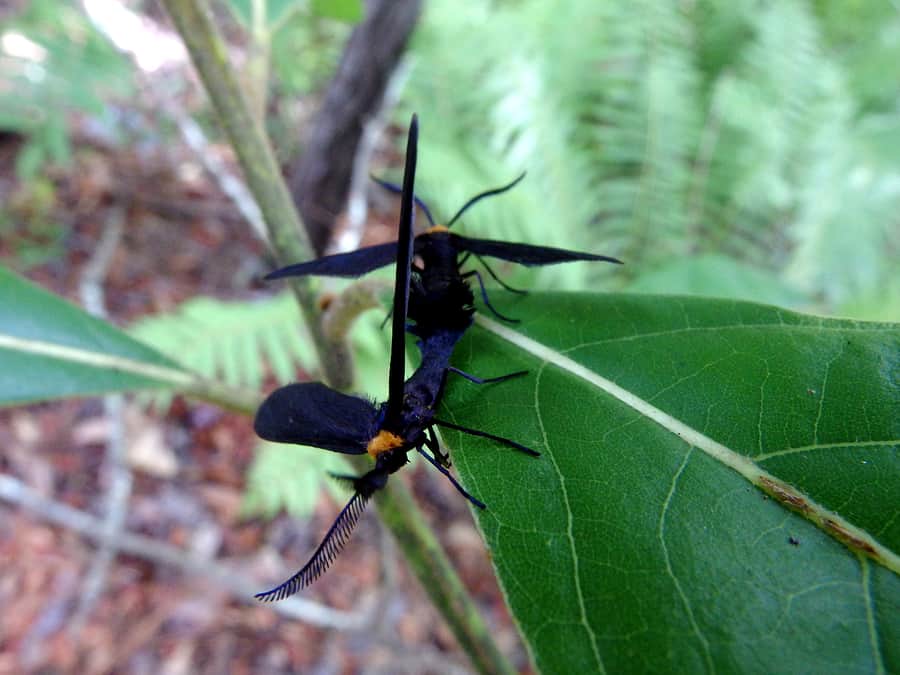READY TO GET STARTED?
REQUEST A FREE ESTIMATE
Fill out the form below or call (888) 466-7849 for a free, no-obligation estimate.

This time of year you may have noticed those pesky black and red bugs flying around, especially while driving your car. These lovebugs, also known as honeymoon flies, kissing bugs, and double-headed bugs, are actually a type of march fly. They are an invasive species that came over from Central America and have now taken over the entire gulf coast, as well as all of Florida, Georgia, and South Carolina. So what should you know about these pests and when does lovebug season end?
Lovebugs are always around but because they spend most of their lifespan as larvae, we don’t notice them as much. We do see them more often during their swarming season which happens twice a year: once in late April and May and again in late August and September. During this time they mate which is why you usually see two of them attached while they’re flying.
Adult female lovebugs only live for 3 to 4 days during mating season. They connect to a male and must stick together at all times during this process. It can take up to 24 hours for the mating process to be complete. Males will swarm in areas they know females will be near. The females then fly into these swarms, which are commonly seen in the morning (around 8:00 to 10:00 am) and the late afternoon/evening (around 4:00 to 5:00 pm).
Lovebugs are attracted to exhaust fumes from cars, lawnmowers, and other engines. They are also attracted to heat and light colored surfaces. For these reasons they are especially common near highways and other high traffic areas.
While they can be a nuisance, lovebugs can actually be beneficial to have around. Lovebug larvae convert plant material into organic substances that the plants then use as a food source. They are difficult to get rid of as pesticides are ineffective against them and they have very few natural predators. Lovebugs aren’t dangerous to humans. They cannot bite or sting, cannot transmit diseases, and aren’t poisonous. They will leave white splatter on your vehicle, which are actually their eggs.
While there isn’t much you can do to prevent lovebugs, there are a few things you can try to help make lovebug season more manageable.
Look Out for These Fall Nuisance Pests
The 411 on Termite Inspections
How to Continue Caring for Your Lawn in the Fall